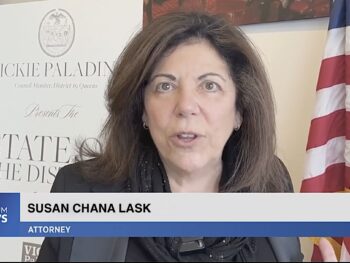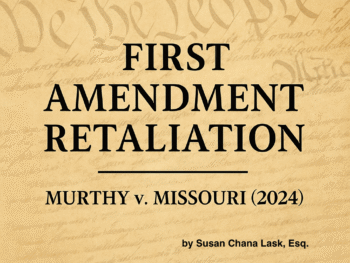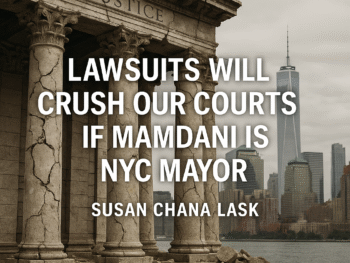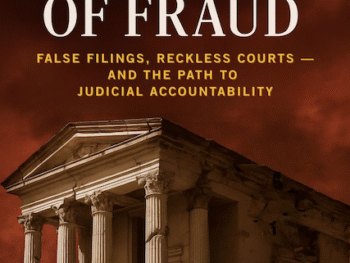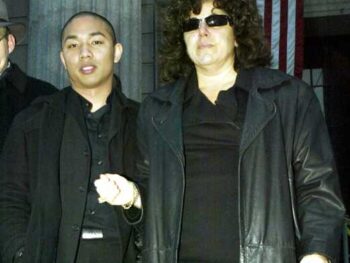‘Twilight Zone’ Foreclosure Law Firm in N.Y. Draws Fine, Suits
December 08, 2010, 1:11 AM EST
By Thom Weidlich and Karen Freifeld
Dec. 8 (Bloomberg) — Steven J. Baum’s New York foreclosure law firm has attracted lawsuits and fines for its actions during the housing crisis, with one judge likening its arguments to the something out of the “Twilight Zone.”
As recently as last month, Baum’s firm, which one lawyer for homeowners said processes about half the foreclosures in New York state, was ordered to pay $14,532.50 in legal fees and costs and a $5,000 fine by Nassau County District Court Judge Scott Fairgrieve in Hempstead, New York.
The judge said that when Paul Raia refused to vacate a Garden City co-op after foreclosure, Baum’s firm filed an eviction petition that misidentified the lender.
“Falsities were contained in five paragraphs out of only ten paragraphs in the entire petition,” Fairgrieve wrote in his Nov. 23 decision.
All 50 U.S. state attorneys general are investigating whether banks, loan servicers and law firms properly prepared documents to justify hundreds of thousands of foreclosures. The probe came after JPMorgan Chase & Co. and Ally Financial Inc.’s GMAC mortgage unit said they would stop repossessions in 23 states where courts supervise home seizures and Bank of America Corp. froze foreclosures nationwide.
Steven J. Baum PC, located in Amherst, New York, just north of Buffalo, has been accused of overcharging, filing false documents and representing parties on both sides of a mortgage transfer. Baum runs the firm his father founded in 1972, according to a fact-sheet provided by Earl V. Wells III, his spokesman.
Syracuse Grad
Baum is a graduate of Syracuse University, got his law degree from the State University of New York at Buffalo and was admitted to practice law in 1987, according to Martindale.com, a legal directory. Baum answered some questions via e-mails.
“Consumer activists and attorneys representing homeowners have their own agenda in this process, including degrading the legal work we conduct on behalf of our clients by using terms like ‘foreclosure mill’ which I find personally and professionally insulting,” he wrote.
At a continuing-education training session a couple of years ago, “Steven Baum himself said they did 49 percent of foreclosures” in the state, Rebecca Case-Grammatico, staff attorney at Rochester, New York-based Empire Justice Center, which represents poor people in foreclosures, said in a phone interview. A complaint in one lawsuit against Baum’s firm says it is “believed to be the largest foreclosure mill in the State of New York.”
Baum declined to comment on the size of his business.
Pillar Processing
A company that processes foreclosure documents shares an address with his law firm. That company, Pillar Processing LLC, is owned by Manhattan private-equity firm Tailwind Capital LLC, according to its website. Brooke Gordon, spokeswoman for Tailwind Capital, declined to comment.
“He’s opposing counsel for us on a huge percentage of our cases,” Meghan Faux, project director of the Foreclosure Prevention Project at South Brooklyn Legal Services, who represents homeowners in predatory-lending cases, said in a phone interview.
New York State Supreme Court Justice Arthur M. Schack in Brooklyn called the firm’s explanations in one case “so incredible, outrageous, ludicrous and disingenuous that they should have been authored by the late Rod Serling.”
Schack threw out the case in part because he said the assignment of the loan had been done improperly. The assignment was made by a Baum lawyer on behalf of Mortgage Electronic Registration Systems Inc. as the nominee for the mortgage bank, according to the judge’s opinion. The same day, the Baum firm represented the buyer of the loan by filing the foreclosure action, the judge said. Schack said it was a conflict for the firm to represent both sides.
‘Parallel Mortgage Universe’
“Steven J. Baum PC appears to be operating in a parallel mortgage universe, unrelated to the real universe,” the judge wrote in that May decision. “Next stop, the Twilight Zone,” he said, quoting from Serling’s TV series about science fiction and the supernatural.
Baum said that in several cases where Schack stated the firm represented both sides in a mortgage transfer, “we have supplied to the court relevant documentation indicating that no conflict of interest existed.”
Mortgage Electronic Registration Systems, based in Reston, Virginia, was set up by the mortgage industry to allow banks to assign and reassign home loans without having to record the changes with county land-records offices.
Federal Case
Last month, Baum’s firm was accused in a lawsuit in federal court in Central Islip on Long Island of charging homeowners illegally for attending foreclosure-settlement conferences. In August, the firm was named in a civil suit in federal court in Brooklyn that said the firm’s foreclosure practices amount to racketeering.
In the Nassau County case, the firm filed the petition on behalf of Federal Home Loan Mortgage Corp., or Freddie Mac, to get Raia out of the Garden City apartment. That action was thrown out in July when the court ruled the assignment to Freddie Mac wasn’t made properly. Fairgrieve then held a hearing on whether the Baum firm should be punished.
In his decision, the judge said the law firm “is highly versed in issues of standing as evidenced by the firm’s abundance of litigation in this area.”
Wells said Baum plans to appeal. Brad German, a spokesman for Freddie Mac, didn’t have an immediate comment.
U.S. Trustee
In January, Diana Adams, the U.S. trustee monitoring bankruptcy cases in Manhattan, reserved the right to seek sanctions against Baum’s firm in the bankruptcy case of a Bronx homeowner. The trustee accused Baum client JPMorgan of filing documents “that appear to be either patently false or misleading,” according to a court a filing recommending sanctions against the bank.
Thomas Kelly, a spokesman for New York-based JPMorgan, declined to comment.
In April, the U.S. trustee, the Justice Department’s representative to protect creditor interests in U.S. bankruptcy courts in New York, objected to Citigroup Inc.’s bid to foreclose on the Manhattan apartment of Gilles and Jennifer Michaud, according to a court filing.
The trustee said Elpiniki M. Bechakas, a Baum lawyer, in her capacity as assistant secretary and vice president of Mortgage Electronic Registration Systems, assigned the mortgage to a Citigroup unit before Baum lawyers filed the motion with the bankruptcy court on behalf of the bank. That put the firm on both sides of the mortgage transfer, Adams said.
Electronic Registration
Wells didn’t respond to an e-mail seeking comment on the U.S. trustee’s accusations. Bechakas didn’t return a call. Jane Limprecht, a spokeswoman for the U.S. trustee, and Mark Rodgers, a spokesman for New York-based Citigroup, declined to comment.
Susan Chana Lask, a New York-based lawyer, on Aug. 17 sued Baum and MERS on behalf of two homeowners in Brooklyn and Rock Hill, New York, accusing them of racketeering by forcing false foreclosures. Baum has called the claims “unfounded” and asked the court to dismiss them. That motion is pending.
Karmela Lejarde, a spokeswoman for MERS, declined to comment. MERS has also asked that the case be dismissed.
Lask accused Baum of filing “tens of thousands of foreclosures” involving mortgages that weren’t properly assigned and of overcharging on foreclosure fees.
“This case represents an aggressive and unfounded attempt by two homeowners who have defaulted on their mortgages to block their foreclosure by claiming that their failure to pay their mortgage was brought about by a massive conspiracy,” Baum’s lawyer, Brett A. Scher of Kaufman Dolowich Voluck & Gonzo LLP in Woodbury, New York, wrote in the motion to dismiss.
Defamation Suit
Scher didn’t return a call seeking further comment. Baum, who declined to comment on the racketeering suit, sued Lask last month for defamation over comments she made, including in a press release announcing her lawsuit, on a YouTube video and in a Buffalo News article.
Lask and her firm “have repeatedly made false statements which they have published, or caused to be published, on websites and newspapers,” according to the complaint filed Nov. 18 in state court in Buffalo.
Lask said she hasn’t been “personally” served with the defamation suit. “There’s absolutely no defamation. Everything I said is based on fact,” she said.
Baum “makes about $200 million a year from the foreclosures,” Lask alleged in the racketeering complaint. Baum said in the e-mail that the figure is inaccurate.
On Nov. 8, Jacob Menashe of Great Neck, New York, filed a suit in federal court in Brooklyn accusing Baum of illegally charging homeowners for attending settlement conferences. The case was assigned to a judge in Central Islip.
Settlement Conferences
“They passed a law about not charging for settlement conferences and they charge for settlement conferences,” Menashe’s lawyer, Randall S. Newman of Manhattan, said in a phone interview.
“The statute relating to settlement conferences was amended and we believe plaintiff’s counsel has misinterpreted its application,” Baum said in the e-mail.
Both Menashe’s and Lask’s suits seek class-action status on behalf of homeowners in the state with similar circumstances.
“What is important now is that all parties attempt to work together to resolve issues amicably,” Baum said in an e-mail. “The barrage of accusations and litigation does little to help the underlying problems.”

